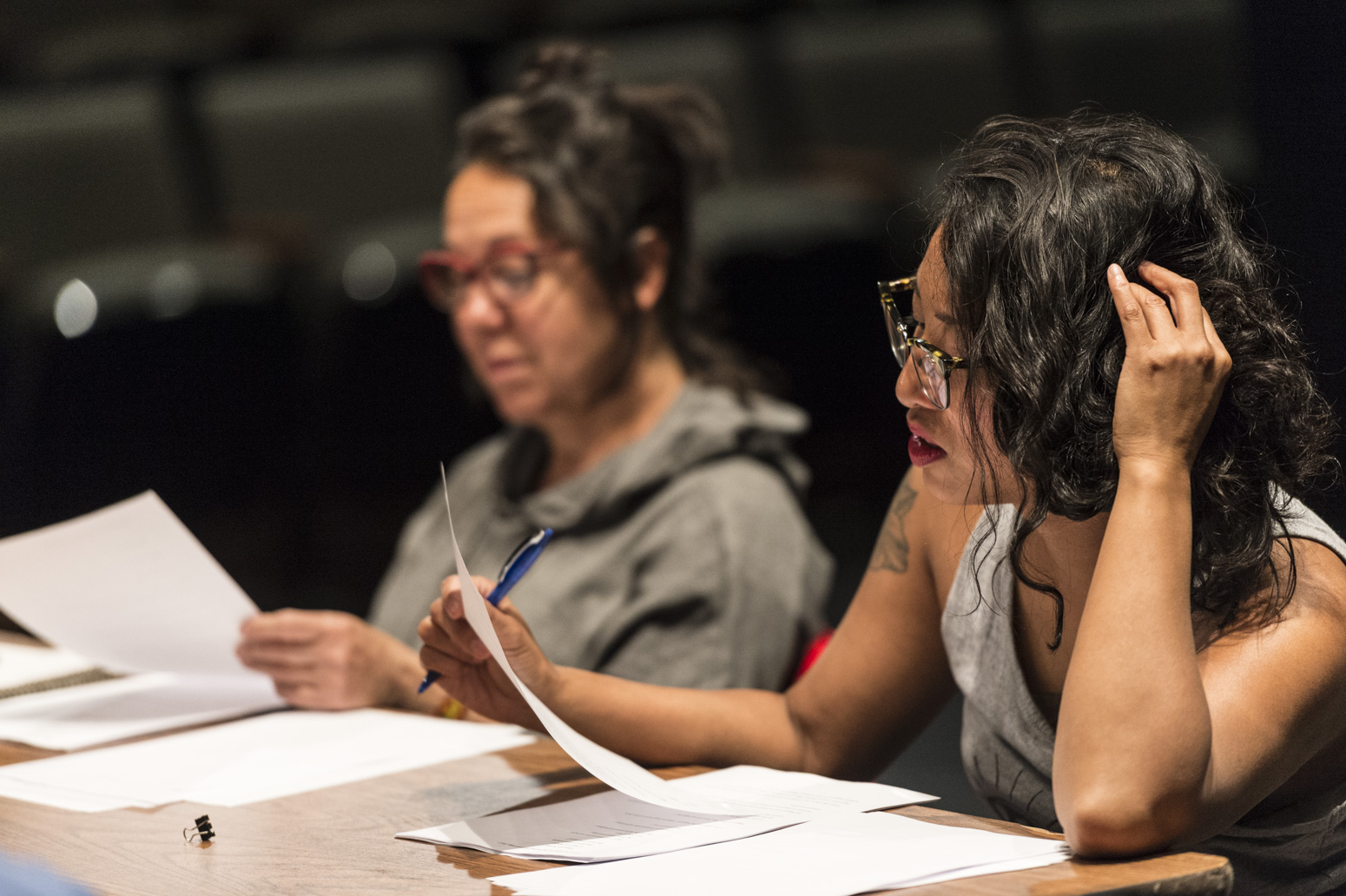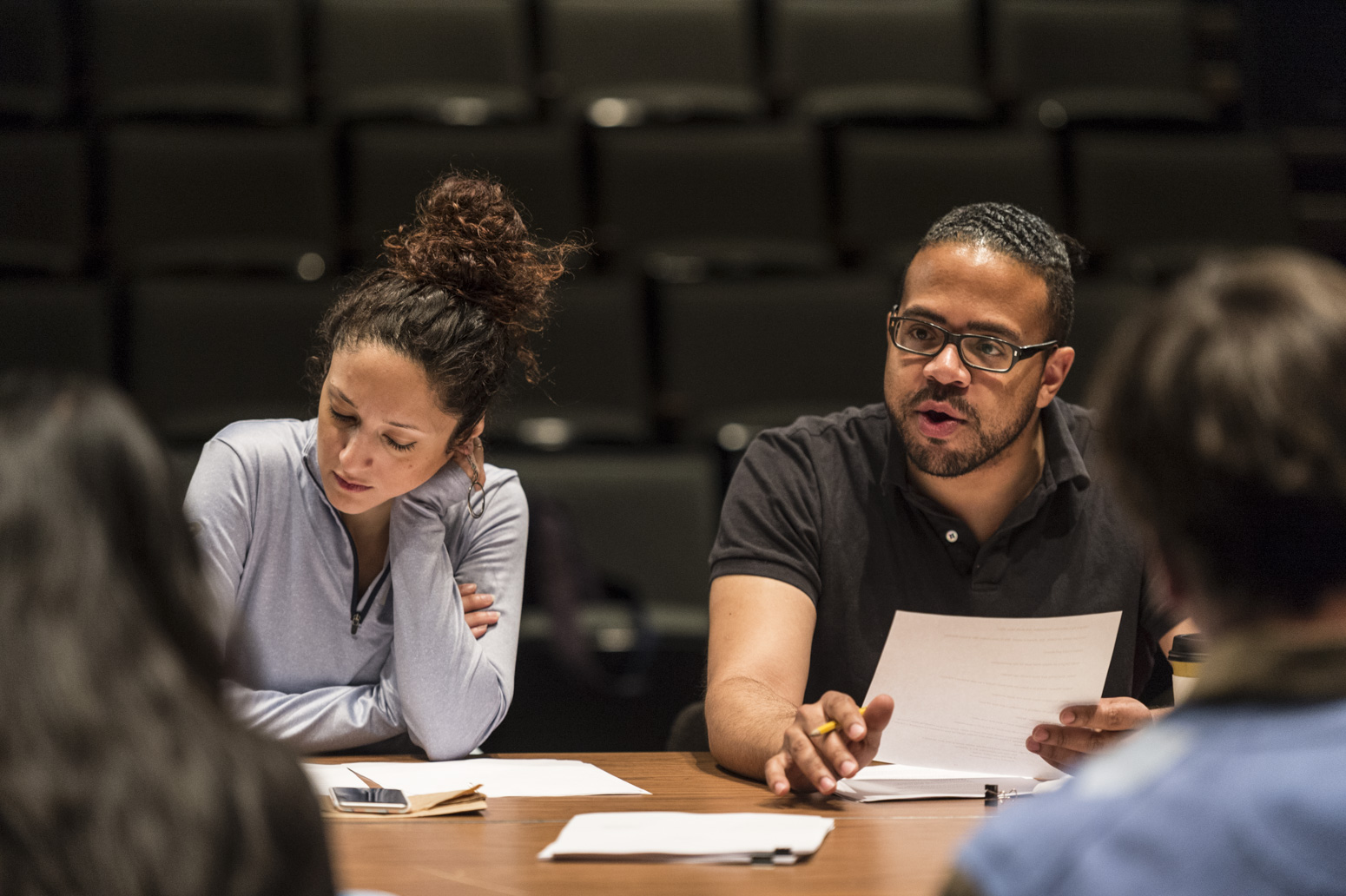Banff Playwrights Lab: Why We're Changing Our Name

Over the past year, Banff Centre has undertaken an examination of its programs in light of the Truth and Reconciliation Report. An important component of this process has been to ensure that the language used at the Centre to name and describe its programs is scrutinized and changed to acknowledge and reflect the Centre’s commitment to Indigenous reconciliation.
For 44 years, Banff’s playwriting residency program has been called The Colony, and it is now time—and long overdue—to retire the word ‘colony’, recognizing the pain and deep discomfort the term generates for many individuals and communities. Over the past five years, I have had the privilege of directing this program, and been honoured by the participation and contributions of remarkable artists – including Indigenous playwrights, actors, scholars and elders – all of whom have shown remarkable patience in the face of this word.
To mark the 45th edition of this program, we are renaming it The Banff Playwrights Lab.
I thank all those who have chafed at the previous name for their tolerance, and welcome them to the Lab in the future under a title that I believe more effectively articulates what the program has evolved into during my tenure. It remains and will always be a vital and dynamic gathering of playwrights and the artists who collaborate on their creations. It is a temporary community devoted to exploring writing for the stage on lands where stories have been told for thousands of years. It is a precious place to be permitted to work, and remains a gathering place that we must never take for granted.
The program has developed in new, more exploratory directions during the past five years to better support the work of those creators; a huge thank you to Associate Dramaturg Jenna Rodgers for collaborating with me on this evolution. The Playwrights Lab encourages participants to further their work not only through play readings (we hold more than 30 during the Lab each year) but also in-studio sessions that examine staging, choreography, sound, design, space and community.
Playwrights create using much more than words; the Lab invites writers to use the full spectrum of their tools and seeks to provide access to those requirements during their residencies at the Lab. We have also made access to the 200-seat Margaret Greenham Theatre a core feature of the program: playwrights must be able to work in theatres when they wish, and we believe it is essential to offer writers not only the opportunity to hear but also to see their work in a performance space, if that is useful and inspiring to them.

We are committed to ensuring that this in-studio research and creation work is led by playwrights, empowering them to guide the teams devoted to developing their work at the Lab and beyond. We actively seek out interdisciplinary projects to broaden the range of artists and collaborators invited to the Lab in order to more fully and accurately reflect how playwrights are creating new works in Canada. And we ensure that international guest artists contribute to the Lab’s conversations about creation, and take Canadian ideas and approaches back with them when they leave.
Check out the Lab’s commitment to inclusion and equity in my recent post that outlines many of the Lab’s priorities and approaches to new creation.
Each year the Lab articulates a focus area to encourage artists to examine in depth specific elements of the performance ecology. Over the past five years, the Lab has explored political writing, interdisciplinary creation, outrage/outrageousness, and theatrical form; earlier this year 45 artists came together to investigate theatre for young audiences.
In 2018, our focus will be on the audience: specifically, in an age when devised works in all disciplines continue to engage audiences in myriad ways, we want to explore how playwrights are thinking about the audience(s) for their works; how playwrights are imagining ways to incorporate spectators into their works; how writers are conceiving and designing new works with the role of audience members as active participants rather than passive viewers. We are interested in projects imagined for very small audiences, and very large ones. We are eager to explore how audiences in Canada are changing, and how playwrights are considering different communities of audiences as they create their work.
As we look ahead to the 45th edition of this program, we also celebrate the impact it has had on hundreds of playwrights since its founding in the early 1970s.
Although the emphasis at the Playwrights Lab will always be on discovery and process, rather than product and production, the impact of the program is visible in the number of Lab shows premiering each year on Canadian stages. In the 2016-17 season, 24 recent Lab projects received productions, with 15 in 2017 alone, at prestigious venues such as PuSh Festival (Vancouver), High Performance Rodeo (Calgary), Luminato Festival (Toronto), Canada Scene (National Arts Centre/Ottawa) and the Stratford Festival.
With a new name, and a renewed commitment to supporting Canadian playwrights, the Banff Playwrights Lab aims to welcome and serve all communities more respectfully, more intentionally, and with the goal of fostering the work of individual artists as deeply as possible.
Brian Quirt is Director of the Banff Playwrights Lab; he is a dramaturg, a produced playwright, has directed across Canada, and is Artistic Director of the Toronto theatre company Nightswimming.